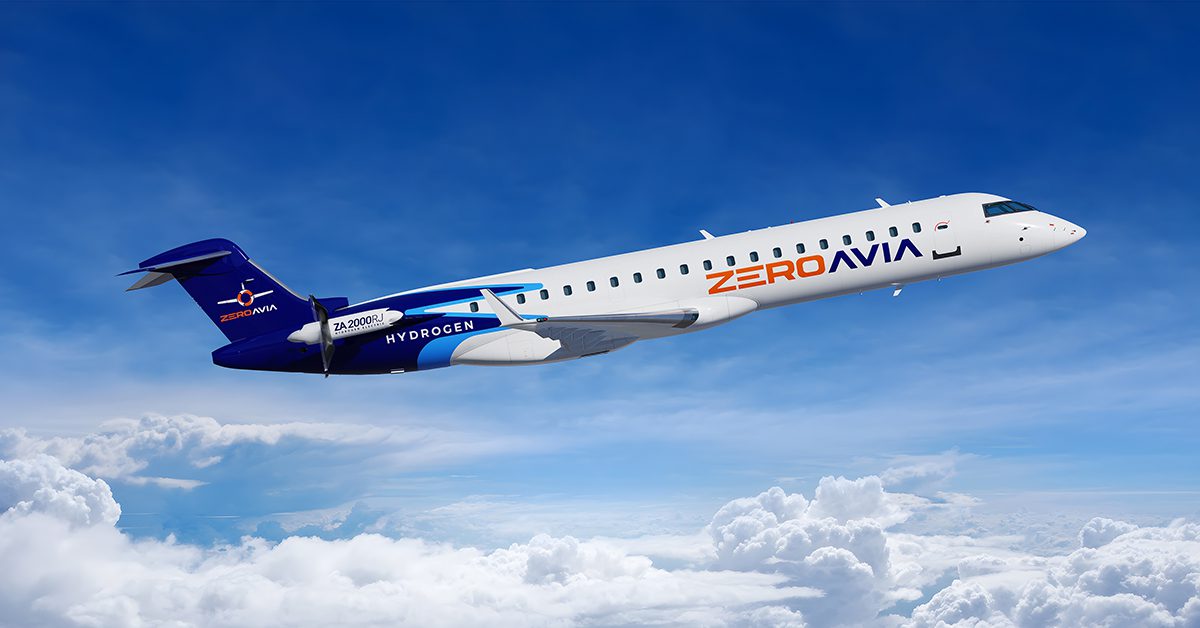
Newsroom Thumbnail ZeroAvia 080222 1200x628 1
American Airlines is the next major airline to invest in ZeroAvia, the start-up that is developing hydrogen fuel cell technology and an electric motor for use on regional to short-haul aircraft. The investment also includes a Memorandum of Understanding for up to 100 hydrogen-electric motors that it plans to install on regional aircraft. American follows United as investor in ZeroAvia.
American hasn’t disclosed the exact amount that it is investing in ZeroAvia. But the US/UK-based company says in a media statement that it has now secured in excess of $150 million in funding for the Zero-Emissions Innovator Rounds Out Series B project. During the Farnborough Airshow, ZeroAvia said on July 20 that it had secured $30 million in funding from International Airlines Group (IAG), Barclays Sustainable Impact Capital, hydrogen producer NEOM, and green investor AENU.
Together with the $35 million investment by United Airlines in December, it had raised $68 million, although back then it said that this was $115 million. This would indicate that American Airlines injects some $82 million into ZeroAvia to bring total funding to the aforementioned $150 million. Investments partners include Alaska Airlines (for the De Havilland Canada Dash 8-400), Shell, Horizon Ventures, AP Ventures, Amazon, Breakthrough Energy Ventures, and Summa Equity.
Developing a 2 mW hydrogen-electric motor
ZeroAvia is currently developing the 600kW ZA600 hydrogen-electric motor that it plans to fly soon on two Dornier Do-228 prototypes. The plan is to certify this motor in 2024. American is interested in the next development, the ZA2000-RJ with an output of two megawatt and growth options to 5mW. This motor, which should be certified in 2026, will be suitable as a replacement for current-technology gas turbines on regional jets like the Mitsubishi CRJ-family (ex-Bombardier). American Eagle operates a fleet of 122 CRJ-700s and 105 CRJ-900s, with PSA having another 49 -700s and 67 -900s.
In May, ZeroAvia and Mitsubishi Heavy Industries Regional Jets (MHIRJ) announced an expanded partnership that will have Mitsubishi as the owner of the intellectual property of the CRJ getting closely involved in the engineering, integration, and certification of the hydrogen-electric airplane.
New step for American
For American, the investment in hydrogen technology aircraft marks a new step in its sustainability plans. Until now, the airline has invested mostly in purchasing sustainable aviation fuels (SAF). It signed a five-year contract with Gevo for 500 million gallons and intends to validate its 2035 plans by using the Science-Based Targets Initiative.
On the investment in ZeroAvia, Chief Financial Officer, Derek Kerr, says in a media statement: “Our investment in ZeroAvia’s emerging hydrogen-electric engine technology has the potential to play a key role in the future of sustainable aviation. We are excited to contribute to this industry development and look forward to exploring how these engines can support the future of our airline as we build American Airlines to thrive forever.”
ZeroAvia CEO Val Miftakhov says: “Having support from the world’s largest airline is a strong indication of the progress we’re making on the development of hydrogen-electric, zero-emission flight. We are focused on delivering sustainable travel, and are delighted that American, a visionary leader in the industry, sees ZeroAvia as a part of the future of aviation.”
Views: 6



